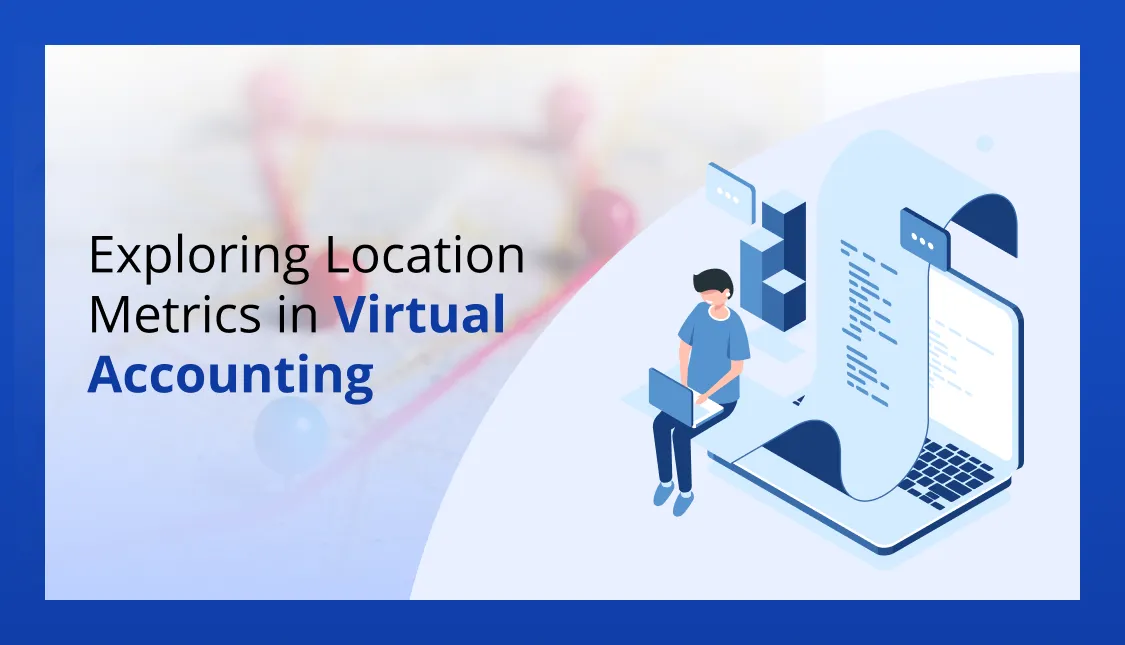As companies adopt remote work and virtual operations, location is becoming less relevant to accounting practices. Traditional accounting methods used physical locations, including tracking inventory at a warehouse, recording product sales at retail outlets or monitoring costs at offices. However, with the advent of location metrics in virtual accounting, it has added a new dimension providing challenges and opportunities.
The Changing Face of Business Operations
The COVID-19 pandemic drove the adoption of remote work/virtual business models across industries. Companies quickly learned to lessen disruptions by utilizing technology to keep operations and allow collaboration across dispersed teams. This has had profound effects on accounting methods because a central physical location became much less important for many companies.
Virtual accounting firms, which are entirely online, have been leading this change. Removing the demand for physical office space means these firms can use a worldwide talent pool, simplify operations and also offer services to clients regardless of where they are. In the same way, conventional accounting firms went virtual and their teams can work remotely while helping customers around the globe.
Importance of Location Metrics in Virtual Accounting
Actual physical location is less important in a virtual environment but location metrics are still critical for some accounting functions. These metrics help businesses monitor economic details, comply with laws and make sound business choices. Listed here are some areas where location metrics in virtual accounting are pertinent:
Tax compliance
Tax laws and regulations can vary significantly between jurisdictions, therefore location metrics are critical to ensure Compliance. Virtual accounting firms must track the locations of their clients, workers and operations to file taxes correctly. That includes local and state taxes, corporation taxes and international taxes.
Payroll & employment regulations
Virtual accounting firms might have remote teams spread throughout multiple countries or regions, therefore Employment laws & Regulations differ. Location metrics in virtual accounting help firms compute payroll taxes, comply with labor laws and document their dispersed workforce.
Revenue Recognition
Location metrics are important for businesses with international sales or operations. Accounting standards and regulations governing revenue recognition could differ between jurisdictions, requiring accurate tracking of customer locations along with sales transactions.
Transfer pricing
Multinational companies conducting cross border transactions should follow transfer Pricing rules governing the rates paid for goods, intangible assets and services transferred between related entities. Location metrics establish the appropriate transfer pricing methodologies and documentation requirements.
Information privacy & security
Location metrics assist virtual accounting companies comply With advancing regulations including the General Data Protection Regulation (GDPR) in the European Union or the California Consumer Privacy Act (CCPA) in the United States With increasing interest in Data privacy and security. Firms need to track the locations of their employees and clients to put into action suitable data security measures.
Using Technology for Location Metrics in Virtual Accounting
Firms are using different solutions and tools to manage location metrics in virtual accounting. Cloud accounting software and platforms usually include location tracking so firms can capture and analyze location data easily. Firms might also utilize specialized software or integrations to automate location metrics collection and processing.
For instance, IP address tracking identifies the geographic origins of customers and workers accessing virtual accounting systems. This information could be correlated with tax and regulatory databases for reporting and compliance.
Another approach might utilize geolocation info collected from smartphones or web browsers to provide much more detailed location information. This is particularly helpful for businesses with field operations or personnel who work from various locations.
Challenges & Considerations
Virtual accounting has no. of advantages but location metrics management has several challenges. Data accuracy and consistency are crucial since errors in location tracking could cause compliance issues, operational inefficiencies and financial penalties.
Also, there are data privacy and security problems with location-based data gathering and processing. Virtual accounting firms must put into action effective data protection and compliance with pertinent privacy regulations to safeguard client and employee information.
Moreover, as location metrics become more complex, firms might need specialist expertise or dedicated teams to handle reporting and compliance. This will raise operating expenses and require continual training and development of accounting professionals.
The Future of Location Metrics In Virtual Accounting
Location metrics will probably be sophisticated and integrated in accounting workflows as virtual accounting methods evolve. Emerging technologies like blockchain and distributed ledger products might offer new possibilities for secure location tracking to facilitate cross-border transactions and regulatory compliance.
Further, artificial intelligence (AI) and machine learning will also transform the way location metrics are examined and utilized in virtual accounting. Making use of predictive analytics and pattern recognition, firms might be able to anticipate regulatory changes, determine possible compliance consequences and enhance their activities appropriately.
Final Thoughts
Location metrics in virtual accounting are still an essential part even with the diminishing focus on actual physical locations. The accurate analysis and tracking of location information is needed for tax compliance, employment regulations compliance, revenue recognition, transfer rates and information privacy & security.
As businesses embrace remote working and virtual workplaces, the need to manage location metrics will only grow. By making use of technology, applying sound processes and creating specialized expertise, virtual accounting firms can utilise location metrics with ease and position themselves to be successful in the digital age.
Read Also Benefits of Switching to Virtual Accounting Services



























